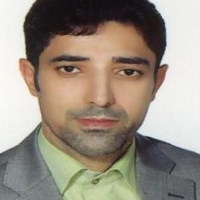Motivational Interviewing on Self-efficacy in Patients with Breast Cancer
Cancer is one of the most important physical problems in the female population. The onset of the disease start with a psychological high–pressure period for women who may lose control, helplessness, depression, and anxiety. If they do not pay attention to their mental status, these psychological complications influence continuing treatment process and subsequent follow–up threaten to survival of patients. Breast cancer is a kind of cancer that begins with breast tissue. One of the common problems among women with cancer is reduced self–efficacy. Various interventional models for self–efficacy have been considered. In this research, motivational interview used. This study aimed to determine the effectiveness of motivational interviewing on self–efficacy in patients with breast cancer of Semnan.
To investigate the aim, 44 patients with breast cancer were firstly selected according to availability method and then were randomly assigned into three groups (15 for group experimental group, 14 for person–centered experimental group and 15 for control group). Patients referred to Kosar hospital in Semnan city (center of Iran). This study was carried out in 2017. After applying pre–test in three groups based on self–efficacy scale for self–management of breast cancer, the group therapy and the person–centered therapy of motivational interviewing (5 sessions, 45 minutes) were applied and after that post–test was taken. Data was analyzed using ANCOVA by SPSS–21.
The mean of self–efficacy in the experimental group of group therapy increased from 63.48 to 73.86, and in the experimental group of individual therapy, this mean increased from 64.28 to 72.42. While in the control group, the change was from 20/63 to 66/73. In general, the results of the covariance analysis showed that the motivational interview increases self–efficacy in the group and individual group (p=0.004). Benoferoni post HOC test was used to examine the difference between the groups. The results showed that there was no significant difference between the experimental group and the individual experimental group, but there was a significant difference between the group therapy’s group and the control group (p<0.001) and between the individual therapy’ group and the control group (p<0.001).
Generally speaking, motivational interviewing has an effective mechanism for increasing self–efficacy in patients with breast cancer. It is recommended to apply this therapy for women with cancer.
- حق عضویت دریافتی صرف حمایت از نشریات عضو و نگهداری، تکمیل و توسعه مگیران میشود.
- پرداخت حق اشتراک و دانلود مقالات اجازه بازنشر آن در سایر رسانههای چاپی و دیجیتال را به کاربر نمیدهد.


